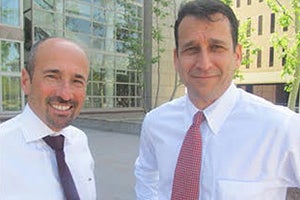Review of Federal False Claims Charges and Defenses
The False Claims Act (FCA) is often used by federal prosecutors in their anti-fraud battle, especially in healthcare and government contracting.
There are numerous federal statutes dedicated to protecting the integrity of how the government operates and to ensure only people who are entitled can take advantage of services offered.

Federal laws are in place in an effort to prevent people from engaging in unlawful or unethical conduct related to claims that impact government services.
The federal government manages healthcare, welfare, defense, highway, contracting, grants, and other programs that annually expend many billions, approaching trillions, of dollars.
Overcharging on government contracts, claiming government benefits not due, and misappropriating government grants all significantly impact the federal fiscal budget.
The federal government recovers up to $3 billion annually in judgments and settlements over fraud and false claims. Think of how much more fraud and how many more false claims go undetected or unrecovered.
The federal government must discourage and punish false claims in its programs.
Federal agencies have anti-fraud statutes with which they can and do discourage false claims against the government.
A primary means by which the federal government patrols its welfare, contracting, and grant programs against fraud and false claims is through:
- False Claims Act - 31 U.S.C. 3729 – 3733, and
- False, Fictitious, or Fraudulent Claims - 18 U.S.C. 287
To give readers a better understanding of the false claims act and how to defend such charges, our Los Angeles criminal lawyers are providing a review below.
False Claims Act
The False Claims Act provides that those who knowingly submit false claims to the government are civilly liable for triple the government's damages plus an inflation-linked penalty for each false claim.
The federal government can and does pursue False Claims Act claims against alleged fraud perpetrators.
But the Act also allows private citizens to file so-called qui tam suits on the federal government's behalf, seeking the same recoveries out of which the private citizens receive a portion.
Many federal investigations, lawsuits, and charges arise from those private qui tam actions.
Notably, the False Claims Act's strict terms require that the defendant have:
- knowingly presented the false claim,
- knowingly made the false record, or
- knowingly withheld money due to the government.
Fraud is a specific intent crime, where the defendant must not just be mistaken or careless but must have the criminal intent that the statute requires.
Federal prosecutors must prove beyond a reasonable doubt like every other element of the crime.
Charges for False, Fictitious, or Fraudulent Claims
While actions under the False Claims Act can result in substantial awards of three times the government's damages plus associated fines, the federal government may also charge false claims crime, adding the risk of imprisonment and significantly complicating a defense.

A primary statute 18 U.S.C. 287 criminalizes the act of:
- presenting a false, fictitious, or fraudulent claim to;
- any official, department, or agency of the United States.
This effectively makes a False Claims Act civil violation into a criminal charge.
Most cases filed under the False Claims Act involve a health care provider who submitted bills for medical services or equipment that were not actually provided to a patient, or were not medically necessary.
False claims cases involve a variety of activity, but all have a common theme. If somebody makes a claim they are entitled to receive compensation from the government, they are prohibited from using any form of deception or false representations to obtain the money.
Related False Claims Act Offenses
The federal government has an arsenal of criminal statutes it can invoke to punish those who make false claims. Other related statutes make it a crime to make a false claim include:
- 18 U.S.C. 285 – taking or using papers related to claims,
- 18 U.S.C. 286 – conspiracy to defraud government with claims,
- 18 U.S.C. 288 – false claims through postal service,
- 18 U.S.C. 289 – false claims for pension payments.
How Can I Fight Federal False Claims Charges?
If you were accused of violating the false claims act, our criminal attorneys have different several ways to challenge the charges. Common defenses include:
No intent to defraud
We may be able to make an argument that you had a reasonable good faith belief you were entitled to payment.
Recall that the prosecutor must prove you had a specific had intent to defraud to obtain a conviction.
Further, as the above discussion suggests, these actions and charges depend on proof that the defendant had the guilty state of mind that the federal statutes require.
We might be able to prove there is no evidence of criminal intent and cast reasonable doubt on that supposition.
Claims were not fraudulent
An effective defense may also simply prove that the disputed claims were not false.
A government allegation that a defendant's product, service, or other performance for which the government paid didn't have the high quality that the government expected is not generally a sufficient allegation of fraud.

The government must prove the defendant's statement to have been measurably, objectively false, not a subjective matter of quality, value, or opinion.
In short, while false claims actions and charges can carry severe sanctions and penalties, our top-rated law firm can successfully defend groundless or exaggerated charges.
We have many trial victories to prove our ability and commitment to defend federal false claims actions and all types of federal crimes.
Eisner Gorin LLP is a nationally recognized defense law firm serving people throughout Southern California, including Los Angeles County, Orange County, Ventura County, Riverside, and San Bernardino.
Get the best representation by calling our law firm at (877) 781-1570, or contact the firm online.

 If you have one phone call from jail, call us! If you are facing criminal charges,
If you have one phone call from jail, call us! If you are facing criminal charges,